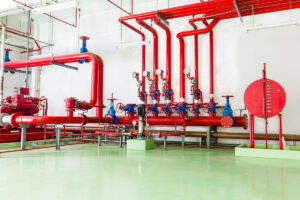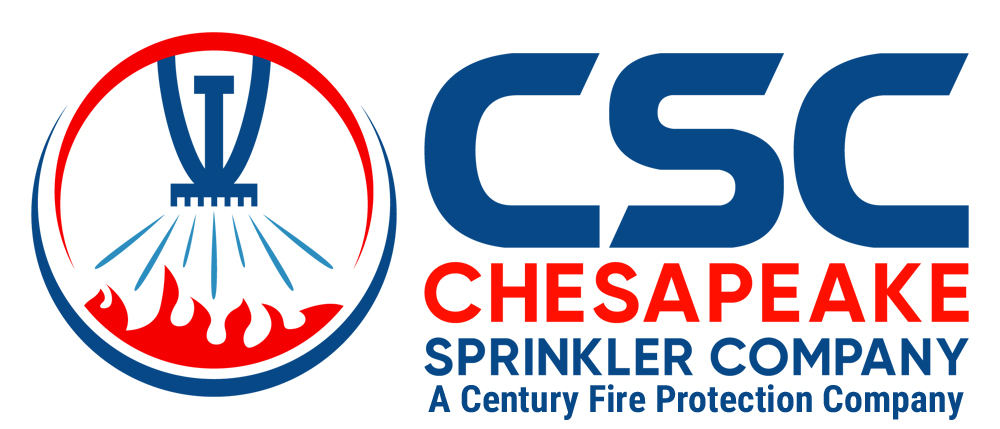
Anyone who runs a commercial facility needs to know the most common fire sprinkler systems code violations and how to avoid them.
Fire sprinkler systems are crucial for ensuring the safety of commercial properties. They are designed to control or extinguish fires, thus minimizing damage and saving lives. However, despite their importance, fire sprinkler systems are often subject to violations of fire codes. These violations can compromise the effectiveness of the systems and pose significant risks to people and property. In addition, fire safety code violations can come with significant consequences for businesses, resulting in hefty fines that can hurt a business’s bottom line.
Improper Installation
Violation
Improper installation of fire sprinkler systems is a prevalent issue. This can include incorrect spacing of sprinkler heads, inappropriate selection of sprinkler types, and incorrect pipe sizes or materials. Such errors can severely impact the system’s performance during a fire emergency.
Prevention
To avoid this violation, ensure that a certified and experienced professional installs the fire sprinkler system. Adhering to the standards set by the National Fire Protection Association (NFPA), specifically NFPA 13, which outlines the installation of sprinkler systems, is crucial. Regular training and updates on code changes for installation teams can also help prevent these mistakes.
Lack of Regular Maintenance and Inspections
Violation
Neglecting regular maintenance and inspections is another common violation. Fire sprinkler systems require routine checks to ensure they are in working order. Components can corrode, get clogged, or suffer wear and tear over time, affecting their functionality.
Prevention
Establish a maintenance schedule as per NFPA 25, which provides guidelines for the inspection, testing, and maintenance of water-based fire protection systems. Engaging a professional fire protection service company to perform these tasks can help ensure compliance. Additionally, maintaining detailed records of all inspections and maintenance activities is essential.
Obstructed Sprinkler Heads
Violation
Sprinkler heads that are blocked by objects or structures can’t effectively disperse water during a fire. Common obstructions include storage racks, decorations, or building modifications that are made without considering the sprinkler system.
Prevention
Maintain a clear space around sprinkler heads. NFPA 25 specifies the required clearance to avoid obstructions. Conduct regular walkthroughs of the property to ensure compliance and educate employees about the importance of keeping sprinkler heads unobstructed.
Inadequate Water Supply
Violation
A fire sprinkler system needs a reliable and sufficient water supply to operate effectively. Inadequate water pressure or flow can severely limit the system’s ability to control a fire.
Prevention
Ensure that the water supply system is designed to meet the needs of the fire sprinkler system. This includes verifying that the municipal water supply can provide the necessary pressure and volume. Regular testing and maintenance of the water supply system, including pumps and valves, are essential. Installing pressure gauges and flow meters can help monitor the system’s performance continuously.
Failure to Replace or Repair Damaged Components
Violation
Over time, components of the fire sprinkler system can become damaged or worn out. Failing to replace or repair these components can result in system failure during a fire.
Prevention
Implement a proactive replacement schedule for components known to have a finite lifespan, such as sprinkler heads, gaskets, and seals. Regular inspections should identify damaged parts, and prompt repairs should be made. Keeping an inventory of critical spare parts can facilitate quick repairs and minimize downtime.
Unauthorized Modifications
Violation
Unauthorized modifications to the sprinkler system can create significant risks. This includes adding new sprinkler heads, relocating existing ones, or altering the piping without proper design and approval.
Prevention
Any modifications to the fire sprinkler system should be designed and executed by certified professionals. All changes should be documented and reviewed to ensure they comply with the applicable codes and standards. Obtaining the necessary permits and inspections for modifications is also crucial.
Non-Compliance with Updated Codes and Standards
Violation
Fire codes and standards are periodically updated to incorporate new research, technology, and best practices. Non-compliance with the latest codes can result in inadequate fire protection.
Prevention
Stay informed about updates to fire codes and standards, such as those published by the NFPA. Regularly review and update the fire protection plan to ensure it meets current requirements. Participation in industry associations and training programs can help keep stakeholders informed about changes in regulations.
Contact Chesapeake Sprinkler Company Today!
Chesapeake Sprinkler Company is a leading fire sprinkler contractor in the region, which is now a 100% employee-owned (ESOP) company. As a full-service fire protection company, we offer design, fabrication, installation, testing, maintenance, and inspection of fire protection systems—everything you need from your fire suppression specialist.
For more information, please email or call our Odenton location at 410-674-7041, our Ashburn location at 703-729-5150, or for service/maintenance Chesapeake Protection Services at 410-674-7577. For emergencies, call 800-298-3473 (FIRE). Feel free to keep in touch through Facebook, Twitter, or LinkedIn!
